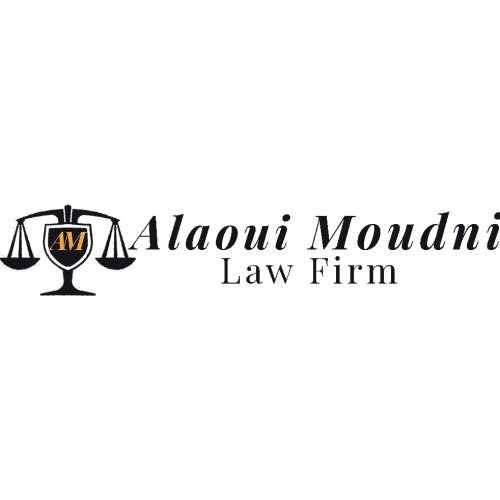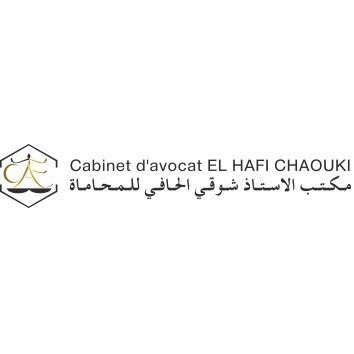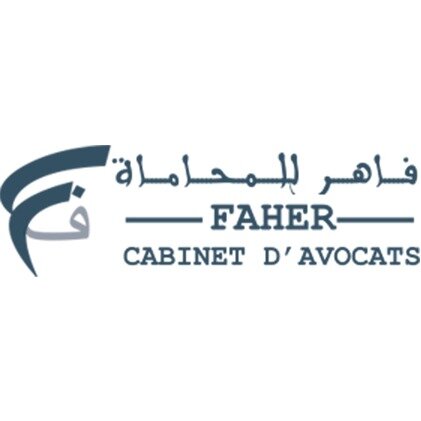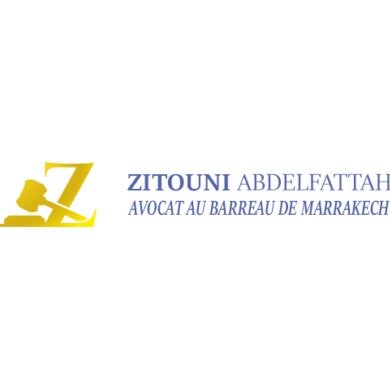Best Natural Resources Lawyers in Morocco
Share your needs with us, get contacted by law firms.
Free. Takes 2 min.
Or refine your search by selecting a city:
List of the best lawyers in Morocco
About Natural Resources Law in Morocco
Natural resources in Morocco are diverse and include mineral deposits, forests, fisheries, water resources, and renewable energy sources such as solar and wind power. Morocco is particularly well-known for its phosphate reserves, ranking among the largest in the world. As such, the management and legal governance of these resources are crucial for the country's economic development and sustainability. The legal framework surrounding these resources is designed to balance economic interests with environmental protection and sustainable development.
Why You May Need a Lawyer
Individuals and businesses may need legal assistance in natural resources situations when engaging in activities like mining, logging, or fisheries, where compliance with local laws and regulations is essential. Common scenarios include obtaining licenses or permits, resolving disputes over resource use, negotiating contracts, or addressing environmental compliance issues. A lawyer specializing in natural resources can help navigate these complex legal requirements and ensure that clients' operations align with national and regional regulations.
Local Laws Overview
Morocco's natural resources laws consist of a blend of traditional practices and modern statutes aimed at sustainable management. Key legislation includes regulations governing mining activities, the protection of water resources, and the promotion of renewable energy. Environmental considerations are prominent, with laws designed to minimize ecological impacts and encourage sustainable exploitation. Additionally, Morocco has implemented policies encouraging investment and development in the renewable energy sector, positioning itself as a leader in solar and wind power production.
Frequently Asked Questions
What is the role of the state in natural resources management in Morocco?
The Moroccan state plays a pivotal role in the management of natural resources, regulating their use and ensuring sustainable practices. This includes issuing permits and licenses, enforcing environmental legislation, and overseeing resource extraction activities.
What legal permits are required for mining operations in Morocco?
Mining operations require multiple permits, including prospecting licenses, exploration licenses, and extraction permits. Each type of permit has specific legal requirements and is subject to strict regulatory oversight.
How does Morocco support renewable energy initiatives?
Morocco encourages renewable energy projects through incentives such as tax breaks, subsidies, and ease of regulatory processes. The country aims to increase the share of renewable energy in its national energy mix significantly.
Can foreign entities invest in Morocco's natural resources sector?
Yes, foreign entities can invest in Morocco's natural resources sector. They are encouraged through government incentives and partnerships but must comply with Moroccan laws and environmental regulations.
What measures are in place to protect Morocco's water resources?
Morocco has implemented comprehensive water management policies focusing on sustainable use, pollution control, and the development of water infrastructure to protect and manage the country's water resources effectively.
Are environmental impact assessments mandatory for natural resource projects?
Yes, most projects involving the exploitation of natural resources in Morocco require comprehensive environmental impact assessments to ensure minimal negative environmental consequences.
How are fishing activities regulated in Morocco?
Fishing activities are regulated through strict quotas and seasons to prevent overfishing and ensure the sustainability of marine resources. Licenses are required for commercial fishing operations.
What is Morocco's legal stance on land use for resource extraction?
Morocco's legal framework ensures that land use for resource extraction is balanced with environmental and community considerations. Appropriate zoning, land-use planning, and public consultation are mandatory.
Who enforces natural resources laws in Morocco?
The enforcement of natural resources laws in Morocco is primarily the responsibility of governmental bodies such as the Ministry of Energy, Mines and Environment and local authorities in charge of various sectors.
What legal recourse is available for disputes over natural resource use?
Disputes over natural resource use are typically resolved through administrative procedures, mediation, or in courts. Specialized tribunals may handle specific types of resource-related disputes.
Additional Resources
Those seeking more information on natural resources and related legal aspects in Morocco can consult governmental bodies such as the Ministry of Energy, Mines and Environment. Organizations like the Moroccan Agency for Sustainable Energy (MASEN) provide additional insights into renewable energy initiatives. Legal professionals specializing in environmental and natural resources law can also offer valuable guidance.
Next Steps
If you need legal assistance regarding natural resources in Morocco, consider consulting with a lawyer specializing in this field to ensure your interests are protected. Start by gathering all relevant documentation and clearly outlining your legal needs. It's advisable to contact a local attorney knowledgeable about the specific laws and regulations governing natural resources in Morocco. A thorough initial consultation can provide clarity and direction for addressing your legal matters effectively.
Lawzana helps you find the best lawyers and law firms in Morocco through a curated and pre-screened list of qualified legal professionals. Our platform offers rankings and detailed profiles of attorneys and law firms, allowing you to compare based on practice areas, including Natural Resources, experience, and client feedback.
Each profile includes a description of the firm's areas of practice, client reviews, team members and partners, year of establishment, spoken languages, office locations, contact information, social media presence, and any published articles or resources. Most firms on our platform speak English and are experienced in both local and international legal matters.
Get a quote from top-rated law firms in Morocco — quickly, securely, and without unnecessary hassle.
Disclaimer:
The information provided on this page is for general informational purposes only and does not constitute legal advice. While we strive to ensure the accuracy and relevance of the content, legal information may change over time, and interpretations of the law can vary. You should always consult with a qualified legal professional for advice specific to your situation.
We disclaim all liability for actions taken or not taken based on the content of this page. If you believe any information is incorrect or outdated, please contact us, and we will review and update it where appropriate.
Browse natural resources law firms by city in Morocco
Refine your search by selecting a city.

















